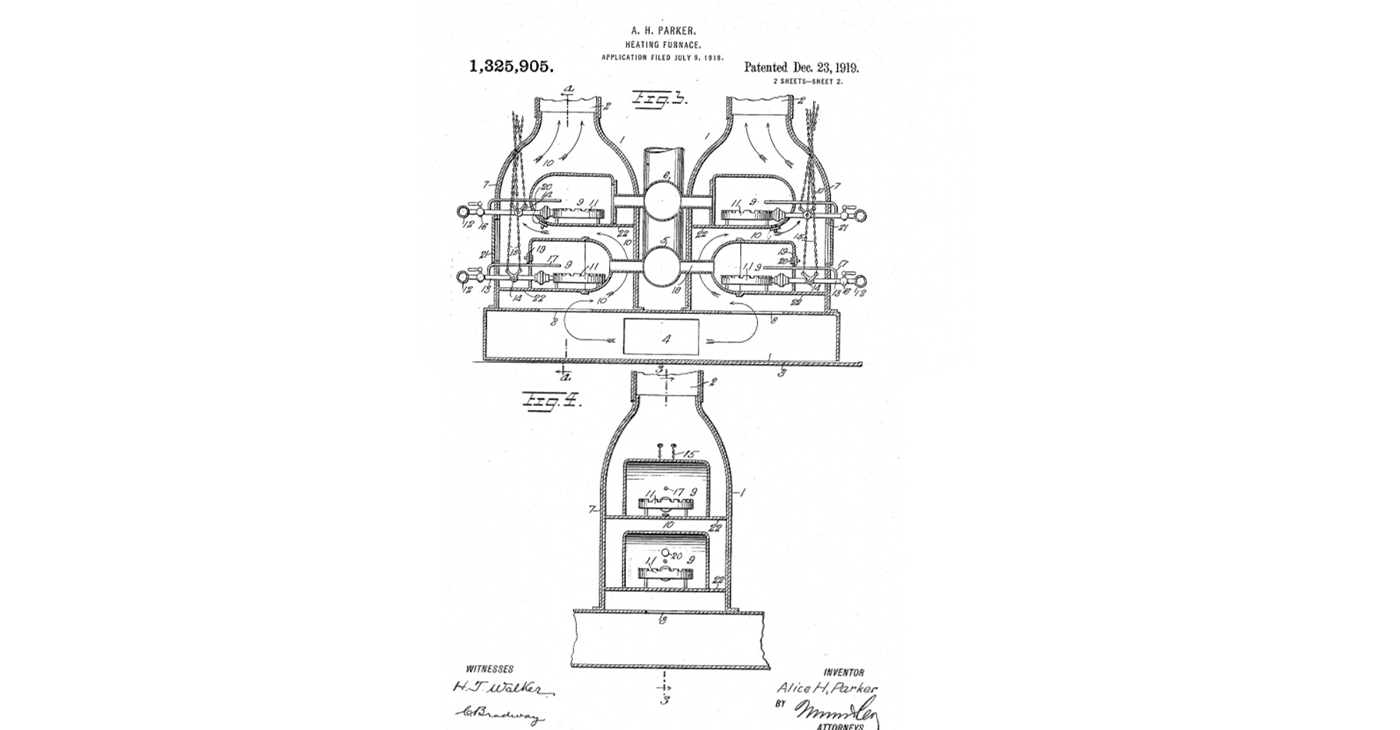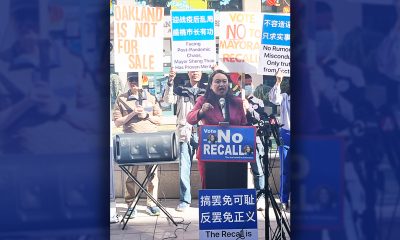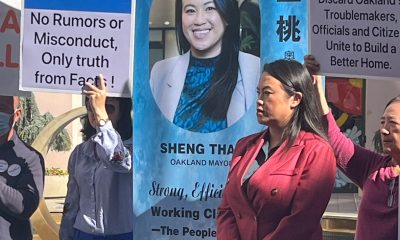National
Report: Blacks, Hispanics Doing Better but Still Lag Whites
JESSE J. HOLLAND, Associated Press
WASHINGTON (AP) — Despite high-profile concern over issues underscored by the racial unrest in Ferguson, Missouri, African Americans and Hispanics are faring well in certain areas, including better health care and reductions in violent crime, the latest State of Black America report from the National Urban League says.
The National Urban League derives its numbers from an “equality index” that is based on nationally collected data from federal agencies including the Census Bureau, the Bureau of Labor Statistics, the National Center for Education Statistics and the Centers for Disease Control and Prevention.
With full equality with whites in economics, health, education, social justice and civic engagement set at 100 percent, the National Urban League said this year’s equality index for blacks stands at 72.2 percent, an improvement over a revised index of 71.5 percent from last year. The equality index for Hispanics improved to 77.7 percent, compared with 75.8 percent last year.
The Urban League will release the full report on Thursday.
The greatest increases for blacks came in health care and social justice, the Urban League said. Improved health care — to 79.8 percent from 78.2 percent — resulted from increased health insurance coverage since the passage of the national health care law and a decrease in binge drinking by blacks.
An improvement in social justice — to 60.6 percent from 56.9 percent — is credited to fewer blacks becoming victims of violent crimes. In addition, the Urban League said there were fewer black high school students carrying weapons compared with white high school students.
The Urban League considered a number of areas to tally its social justice score, including homicide rates, average prison sentences, arrest rates, hate crime rates and the number of youth carrying weapons.
Relations between police and minorities have been under scrutiny since Michael Brown, who was black and unarmed, was killed in Ferguson, Missouri, by Darren Wilson, a white police officer. A grand jury declined to indict Wilson in November, and the U.S. Justice Department cleared Wilson of civil rights charges in a report released March 4. Wilson resigned from the department in November.
A separate Justice Department report found widespread racial bias in the city’s policing and in a municipal court system driven by profit extracted from mostly black and low-income residents.
“These challenges that we face in the justice area should be a call to action, a call for us to reform and fix and build and strengthen the relationship between police and communities,” National Urban League President Marc Morial said.
Areas with decreases for African Americans were education — to 76.1 percent from last year’s 76.7 percent — and civic involvement — 104 percent from last year’s 104.7 percent. Civic involvement also declined for Hispanics to 71 percent this year from 71.2 last year, the only area among Hispanics that decreased.
The highest increases for Hispanics were also in health care and social justice, the report said. A lower incarceration rate and fewer high school students carrying weapons contributed to the social justice increase for Hispanics — from 66.1 percent to 72.7 percent — while a lower death rate and better health care coverage under the nation’s health care law contributed to an increase to 106.9 percent from last year’s 102.4 percent.
Improvements in social justice for blacks came despite highly publicized incidents between police and African American men last year, including the deaths of Brown in Ferguson and Eric Garner in New York. Morial said that blacks and Hispanics are suffering through a “justice, jobs and education” crisis that needs to be addressed.
“If you solve one, you’re going to help move in the direction of solving the other,” Morial said.
____
Follow Jesse J. Holland on Twitter at http://www.twitter.com/jessejholland.
Copyright 2015 The Associated Press. All rights reserved. This material may not be published, broadcast, rewritten or redistributed.
Arts and Culture
In ‘Affrilachia: Testimonies,’ Puts Blacks in Appalacia on the Map

By Terri Schlichenmeyer
The Bookworm Sez
An average oak tree is bigger around than two people together can reach.
That mighty tree starts out with an acorn the size of a nickel, ultimately growing to some 80 feet tall, with a canopy of a hundred feet or more across.
And like the new book, “Affrilachia” by Chris Aluka Berry (with Kelly Elaine Navies and Maia A. Surdam), its roots spread wide and wider.
Affriclachia is a term a Kentucky poet coined in the 1990s referring to the Black communities in Appalachia who are similarly referred to as Affrilachians.
In 2016, “on a foggy Sunday morning in March,” Berry visited Affrilachia for the first time by going the Mount Zion AME Zion Church in Cullowhee, North Carolina. The congregation was tiny; just a handful of people were there that day, but a pair of siblings stood out to him.
According to Berry, Ann Rogers and Mae Louise Allen lived on opposite sides of town, and neither had a driver’s license. He surmised that church was the only time the elderly sisters were together then, but their devotion to one another was clear.
As the service ended, he asked Allen if he could visit her. Was she willing to talk about her life in the Appalachians, her parents, her town?
She was, and arrangements were made, but before Barry could get back to Cullowhee, he learned that Allen had died. Saddened, he wondered how many stories are lost each day in mountain communities where African Americans have lived for more than a century.
“I couldn’t make photographs of the past,” he says, “but I could document the people and places living now.”
In doing so he also offers photographs that he collected from people he met in ‘Affrilachia,’ in North Carolina, Georgia, Kentucky, and Tennessee, at a rustic “camp” that was likely created by enslaved people, at churches, and in modest houses along highways.
The people he interviewed recalled family tales and community stories of support, hardship, and home.
Says coauthor Navies, “These images shout without making a sound.”
If it’s true what they say about a picture being worth 1,000 words, then “Affrilachia,” as packed with photos as it is, is worth a million.
With that in mind, there’s not a lot of narrative inside this book, just a few poems, a small number of very brief interviews, a handful of memories passed down, and some background stories from author Berry and his co-authors. The tales are interesting but scant.
For most readers, though, that lack of narrative isn’t going to matter much. The photographs are the reason why you’d have this book.
Here are pictures of life as it was 50 years or a century ago: group photos, pictures taken of proud moments, worn pews, and happy children. Some of the modern pictures may make you wonder why they’re included, but they set a tone and tell a tale.
This is the kind of book you’ll take off the shelf, and notice something different every time you do. “Affrilachia” doesn’t contain a lot of words, but it’s a good choice when it’s time to branch out in your reading.
“Affrilachia: Testimonies,” by Chris Aluka Berry with Kelly Elaine Navies and Maia A. Surdam
c.2024, University of Kentucky Press, $50.00.
Black History
Alice Parker: The Innovator Behind the Modern Gas Furnace
Born in Morristown, New Jersey, in 1895, Alice Parker lived during a time when women, especially African American women, faced significant social and systemic barriers. Despite these challenges, her contributions to home heating technology have had a lasting impact.

By Tamara Shiloh
Alice Parker was a trailblazing African American inventor whose innovative ideas forever changed how we heat our homes.
Born in Morristown, New Jersey, in 1895, Parker lived during a time when women, especially African American women, faced significant social and systemic barriers. Despite these challenges, her contributions to home heating technology have had a lasting impact.
Parker grew up in New Jersey, where winters could be brutally cold. Although little is documented about her personal life, her education played a crucial role in shaping her inventive spirit. She attended Howard University, a historically Black university in Washington, D.C., where she may have developed her interest in practical solutions to everyday challenges.
Before Parker’s invention, most homes were heated using wood or coal-burning stoves. These methods were labor-intensive, inefficient, and posed fire hazards. Furthermore, they failed to provide even heating throughout a home, leaving many rooms cold while others were uncomfortably warm.
Parker recognized the inefficiency of these heating methods and imagined a solution that would make homes more comfortable and energy-efficient during winter.
In 1919, she patented her design for a gas-powered central heating system, a groundbreaking invention. Her design used natural gas as a fuel source to distribute heat throughout a building, replacing the need for wood or coal. The system allowed for thermostatic control, enabling homeowners to regulate the temperature in their homes efficiently.
What made her invention particularly innovative was its use of ductwork, which channeled warm air to different parts of the house. This concept is a precursor to the modern central heating systems we use today.
While Parker’s design was never fully developed or mass-produced during her lifetime, her idea laid the groundwork for modern central heating systems. Her invention was ahead of its time and highlighted the potential of natural gas as a cleaner, more efficient alternative to traditional heating methods.
Parker’s patent is remarkable not only for its technical innovation but also because it was granted at a time when African Americans and women faced severe limitations in accessing patent protections and recognition for their work. Her success as an inventor during this period is a testament to her ingenuity and determination.
Parker’s legacy lives on in numerous awards and grants – most noticeably in the annual Alice H. Parker Women Leaders in Innovation Award. That distinction is given out by the New Jersey Chamber of Commerce to celebrate outstanding women innovators in Parker’s home state.
The details of Parker’s later years are as sketchy as the ones about her early life. The specific date of her death, along with the cause, are also largely unknown.
Activism
U.S. House Minority Leader Hakeem Jeffries Speaks on Democracy at Commonwealth Club
Based on his first speech as House minority leader, “The ABCs of Democracy” by Grand Central Publishing is an illustrated children’s book for people of all ages. Each letter contrasts what democracy is and isn’t, as in: “American Values over Autocracy”, “Benevolence over Bigotry” and “The Constitution over the Cult.”

By Linda Parker Pennington
Special to The Post
House Minority Leader Hakeem Jeffries addressed an enthusiastic overflow audience on Monday at San Francisco’s Commonwealth Club, launching his first book, “The ABCs of Democracy.”
Based on his first speech as House minority leader, “The ABCs of Democracy” by Grand Central Publishing is an illustrated children’s book for people of all ages.
Each letter contrasts what democracy is and isn’t, as in: “American Values over Autocracy”, “Benevolence over Bigotry” and “The Constitution over the Cult.”
Less than a month after the election that will return Donald Trump to the White House, Rep. Jeffries also gave a sobering assessment of what the Democrats learned.
“Our message just wasn’t connecting with the real struggles of the American people,” Jeffries said. “The party in power is the one that will always pay the price.”
On dealing with Trump, Jeffries warned, “We can’t fall into the trap of being outraged every day at what Trump does. That’s just part of his strategy. Remaining calm in the face of turmoil is a choice.”
He pointed out that the razor-thin margin that Republicans now hold in the House is the lowest since the Civil War.
Asked what the public can do, Jeffries spoke about the importance of being “appropriately engaged. Democracy is not on autopilot. It takes a citizenry to hold politicians accountable and a new generation of young people to come forward and serve in public office.”
With a Republican-led White House, Senate, House and Supreme Court, Democrats must “work to find bi-partisan common ground and push back against far-right extremism.”
He also described how he is shaping his own leadership style while his mentor, Speaker-Emeritus Nancy Pelosi, continues to represent San Francisco in Congress. “She says she is not hanging around to be like the mother-in-law in the kitchen, saying ‘my son likes his spaghetti sauce this way, not that way.’”
-

 California Black Media4 weeks ago
California Black Media4 weeks agoCalifornia to Offer $43.7 Million in Federal Grants to Combat Hate Crimes
-

 Black History4 weeks ago
Black History4 weeks agoEmeline King: A Trailblazer in the Automotive Industry
-

 California Black Media4 weeks ago
California Black Media4 weeks agoGov. Newsom Goes to Washington to Advocate for California Priorities
-

 California Black Media4 weeks ago
California Black Media4 weeks agoCalifornia Department of Aging Offers Free Resources for Family Caregivers in November
-

 Activism3 weeks ago
Activism3 weeks agoOakland Post: Week of November 27 – December 3, 2024
-

 Activism4 weeks ago
Activism4 weeks agoOCCUR Hosts “Faith Forward” Conference in Oakland
-

 Activism4 weeks ago
Activism4 weeks agoRichmond Seniors Still Having a Ball After 25 Years
-

 Activism2 weeks ago
Activism2 weeks agoButler, Lee Celebrate Passage of Bill to Honor Congresswoman Shirley Chisholm with Congressional Gold Medal

























































Pingback: Things Are Looking Up for Blacks, Hispanics, but Still Trail Whites